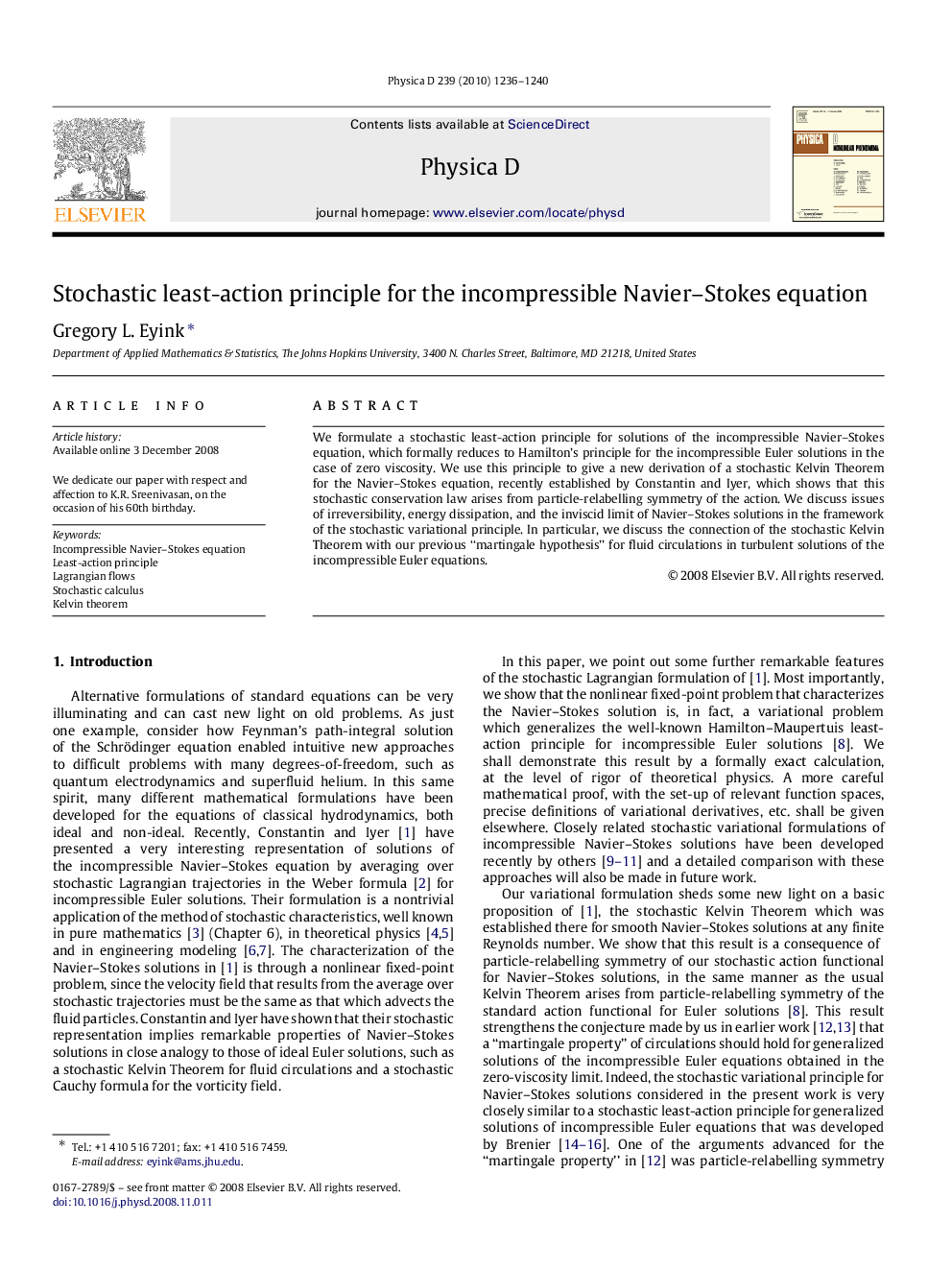| Article ID | Journal | Published Year | Pages | File Type |
|---|---|---|---|---|
| 1896493 | Physica D: Nonlinear Phenomena | 2010 | 5 Pages |
We formulate a stochastic least-action principle for solutions of the incompressible Navier–Stokes equation, which formally reduces to Hamilton’s principle for the incompressible Euler solutions in the case of zero viscosity. We use this principle to give a new derivation of a stochastic Kelvin Theorem for the Navier–Stokes equation, recently established by Constantin and Iyer, which shows that this stochastic conservation law arises from particle-relabelling symmetry of the action. We discuss issues of irreversibility, energy dissipation, and the inviscid limit of Navier–Stokes solutions in the framework of the stochastic variational principle. In particular, we discuss the connection of the stochastic Kelvin Theorem with our previous “martingale hypothesis” for fluid circulations in turbulent solutions of the incompressible Euler equations.
